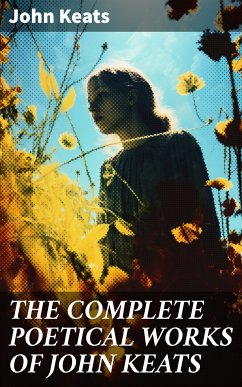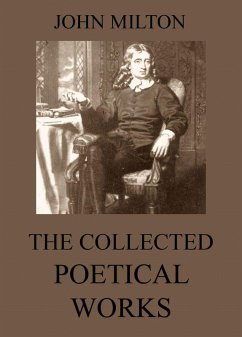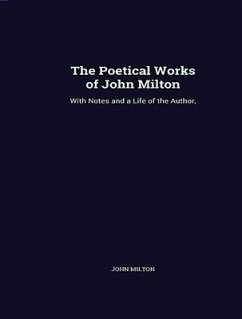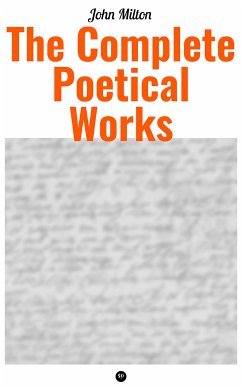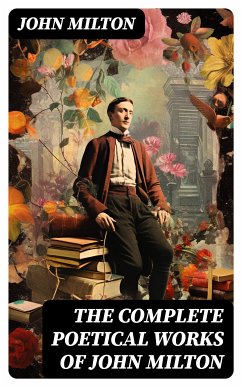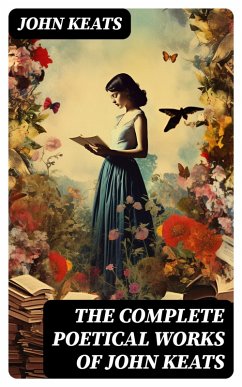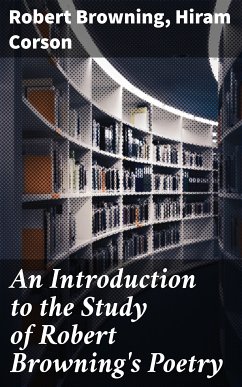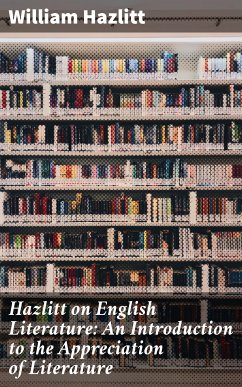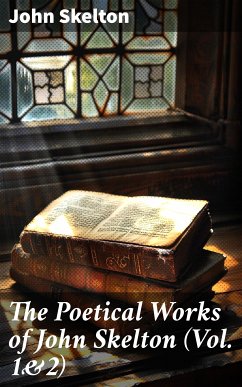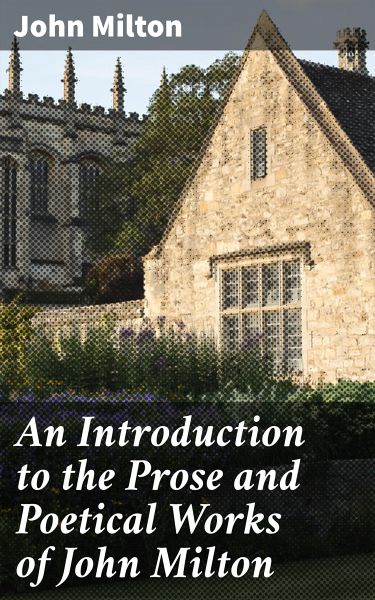
An Introduction to the Prose and Poetical Works of John Milton (eBook, ePUB)
Enriched edition. Comprising All the Autobiographic Passages in His Works, the More Explicit Presentations of His Ideas of True Liberty
Kommentar: Becker, Shane / Redaktion: Good Press; Corson, Hiram
Sofort per Download lieferbar
0,49 €
inkl. MwSt.
Weitere Ausgaben:

PAYBACK Punkte
0 °P sammeln!
In "An Introduction to the Prose and Poetical Works of John Milton," the reader is treated to a comprehensive exploration of the literary offerings of one of the most influential figures in English literature. This text serves as both a critical introduction and a thoughtful anthology, presenting Milton's unique blend of poetic grandeur and prose clarity. The book situates Milton within the tumultuous context of the English Civil War and the Restoration, revealing how his works reflect the political, religious, and philosophical discourses of his time. With an analytical lens, the introduction...
In "An Introduction to the Prose and Poetical Works of John Milton," the reader is treated to a comprehensive exploration of the literary offerings of one of the most influential figures in English literature. This text serves as both a critical introduction and a thoughtful anthology, presenting Milton's unique blend of poetic grandeur and prose clarity. The book situates Milton within the tumultuous context of the English Civil War and the Restoration, revealing how his works reflect the political, religious, and philosophical discourses of his time. With an analytical lens, the introduction delves into the thematic intricacies and stylistic innovations that characterize Milton's oeuvre, from the sublime verses of "Paradise Lost" to his fervent polemics defending liberty and divine justice. John Milton (1608-1674) was not only a poet but also a political thinker and a proponent of liberty, whose life experiences deeply informed his writing. A staunch Puritan, Milton was a vocal critic of tyranny and censorship, and his profound belief in the necessity of personal and political freedom played a pivotal role in the formation of his literary voice. His engagement with contemporary debates on governance and spirituality fuels his ambition to harmonize poetic beauty with moral rigor in his works. This introduction is highly recommended for both students and scholars seeking to understand the depth of Milton's literary contributions. It illuminates the intersections of art and ideology, encouraging readers to appreciate the enduring relevance of Milton's thought and creativity. A must-read for anyone interested in the evolution of English literature and the complexities of its historical context. In this enriched edition, we have carefully created added value for your reading experience: - A succinct Introduction situates the work's timeless appeal and themes. - The Synopsis outlines the central plot, highlighting key developments without spoiling critical twists. - A detailed Historical Context immerses you in the era's events and influences that shaped the writing. - An Author Biography reveals milestones in the author's life, illuminating the personal insights behind the text. - A thorough Analysis dissects symbols, motifs, and character arcs to unearth underlying meanings. - Reflection questions prompt you to engage personally with the work's messages, connecting them to modern life. - Hand-picked Memorable Quotes shine a spotlight on moments of literary brilliance. - Interactive footnotes clarify unusual references, historical allusions, and archaic phrases for an effortless, more informed read.
Dieser Download kann aus rechtlichen Gründen nur mit Rechnungsadresse in A, B, BG, CY, CZ, D, DK, EW, E, FIN, F, GR, H, IRL, I, LT, L, LR, M, NL, PL, P, R, S, SLO, SK ausgeliefert werden.





